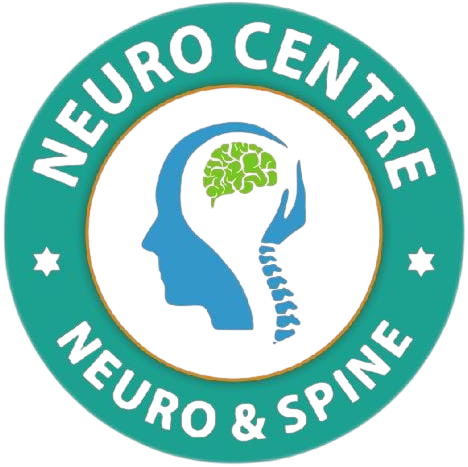Epilepsy Overview: Types, Warning Signs and Risk Factors
Epilepsy is a persistent neurologic disorder that impacts people of all ages. The condition is characterized by repeated seizures that are not provoked by epilepsy and may have an impact on one’s level of living. With the proper treatment and diagnosis, those who suffer from epilepsy may lead happy, life-long, enjoyable lives. If you’re in search of an effective treatment for epilepsy in Jamshedpur, this article offers an extensive overview of epilepsy, the types of epilepsy, warning signs as well as risk factors and local experts who can provide reliable advice.
What is Epilepsy?
Epilepsy happens when there’s irregular electrical activity inside the brain, which can trigger seizures. The seizures may vary in severity and manifestation, with a range of symptoms, ranging from intermittent lapses in concentration to complete body shaking. The person is usually diagnosed with epilepsy when they experience at least two seizures that are not provoked.
Types of Epilepsy
Knowing the various types of epilepsy is crucial in managing the disorder effectively. The following are the main types:
1. Focal Epilepsy (Partial Seizures)
Focal epilepsy begins within a specific area in the brain. These seizures can be:
- The focal-aware seizures (simple partial). A person is conscious and alert, however, they might be experiencing unusual movements or sensations.
- The cause of these seizures is a focal impairment (complex partial). A person might appear confused or confused, and could not recall what happened afterwards.
2. Generalized Epilepsy
This kind of brain is a combination of both brain sides and can include:
- Insomnia-clonic seizures (grand mal) are characterized by stiffening of the muscles and then jerking motions.
- Absence seizures (petit mal): Brief lapses in awareness, often mistaken for daydreaming.
- Myoclonic, atonic and tonic seizures could be caused by sudden jerks or reduction in muscle tone or muscle stiffening.
3. Combined Generalized and Focal Epilepsy
A few people suffer from a combination of generalized as well as focal seizures. This makes diagnosis and treatment more difficult.
4. Unknown Onset
Some seizures aren’t identified due to an absence of evidence or insufficient EEG findings.
Warning Signs and Symptoms
Recognizing warning signs of seizures can prevent damage and facilitate prompt intervention. The most common symptoms are:
- Confusion or sudden loss of consciousness
- Staring spells
- The arms or legs
- Repeated movements or fumbling
- Unusual sensations like flavours, smells or even sounds
- The emotional changes that occur include anxiety and fear
In Jamshedpur, Neurocentre offers timely diagnosis and follow-up to help families and patients identify the signs and symptoms that are causing them.
Risk Factors for Epilepsy
Epilepsy can be triggered by many reasons, and understanding the risk factors is a way to guide preventive strategies
- Genetics: An epilepsy-related family history raises the chance of acquiring the disorder.
- Brain Trauma: Injuries, accidents, or surgery that affect the brain may trigger epilepsy.
- Infections: Certain types of brain diseases, including meningitis or encephalitis, have been proven as the risk causes.
- Stroke and Tumours: The disruption of blood flow to the brain or in abnormal growths may trigger seizure activity.
- Developmental Disorders: Neurofibromatosis or autism can be associated with epilepsy in certain individuals.
Epilepsy Treatment in Jamshedpur
If you or a loved one is suffering from seizures, it’s crucial to get a medical professional’s attention immediately. Neurocentre, with the expertise of Dr. M. N. Singh, offers an advanced and compassionate treatment for epilepsy in Jamshedpur.
Dr. Singh is regarded as the most reputable neurologist located in Jamshedpur to treat epilepsy, with a customised treatment plan that could include:
- Management of medication to manage seizures
- Brain imaging and EEG to provide an exact diagnosis
- Counselling for lifestyle issues to recognize the triggers for seizures and to avoid them
- Referrals to surgery for epilepsy that are drug-resistant instances
Why Choose Neurocentre?
- Expert Doctor. M. N. Singh is a specialist with years of experience in treating and diagnosing epilepsy in all ages.
- Complete Facilities Comprehensive Facilities: From diagnostic instruments like EEG and MRI, and long-term treatment plans, Neurocentre is equipped with all the necessary equipment, all under one roof.
- Patients-Centric Approach: The center is a place where patients are comfortable, educated as well as support throughout every phase of their journey.
Conclusion
It is an easily treatable disorder and can be treated with early detection and professional care. Being aware of the various kinds, signs of warning and risk factors enables those who suffer and their families to make proactive decisions. In and within Jamshedpur and surrounding areas, the road to better health begins with Neurocentre and the trusted direction by Dr. M. N. Singh known as a top neurologist located in Jamshedpur to treat epilepsy.
Should you, or anyone else you are aware of needs assistance now, don’t hesitate. Call Neurocentre now and start the process towards the life that is seizure-free.







